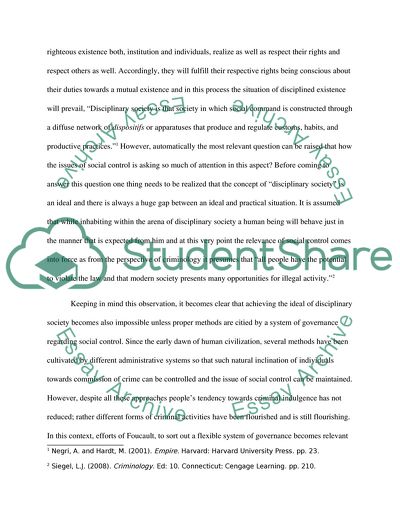Cite this document
(Foucaults Work on the Disciplinary Society and His Understanding of Research Paper, n.d.)
Foucaults Work on the Disciplinary Society and His Understanding of Research Paper. Retrieved from https://studentshare.org/sociology/1736410-to-what-extent-does-foucaults-work-on-the-disciplinary-society-help-us-to-understand-social-control-in-todays-society
Foucaults Work on the Disciplinary Society and His Understanding of Research Paper. Retrieved from https://studentshare.org/sociology/1736410-to-what-extent-does-foucaults-work-on-the-disciplinary-society-help-us-to-understand-social-control-in-todays-society
(Foucaults Work on the Disciplinary Society and His Understanding of Research Paper)
Foucaults Work on the Disciplinary Society and His Understanding of Research Paper. https://studentshare.org/sociology/1736410-to-what-extent-does-foucaults-work-on-the-disciplinary-society-help-us-to-understand-social-control-in-todays-society.
Foucaults Work on the Disciplinary Society and His Understanding of Research Paper. https://studentshare.org/sociology/1736410-to-what-extent-does-foucaults-work-on-the-disciplinary-society-help-us-to-understand-social-control-in-todays-society.
“Foucaults Work on the Disciplinary Society and His Understanding of Research Paper”, n.d. https://studentshare.org/sociology/1736410-to-what-extent-does-foucaults-work-on-the-disciplinary-society-help-us-to-understand-social-control-in-todays-society.


